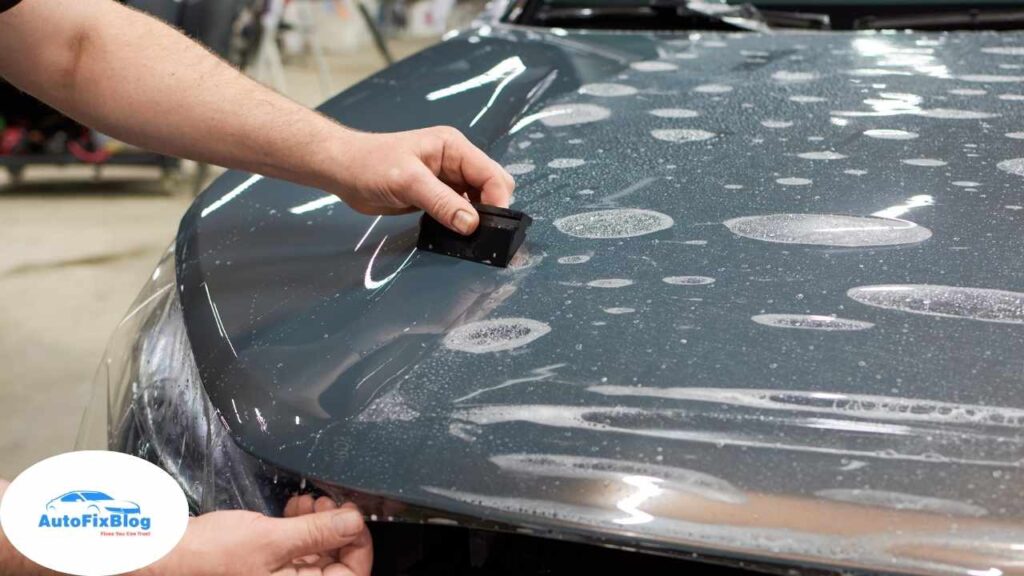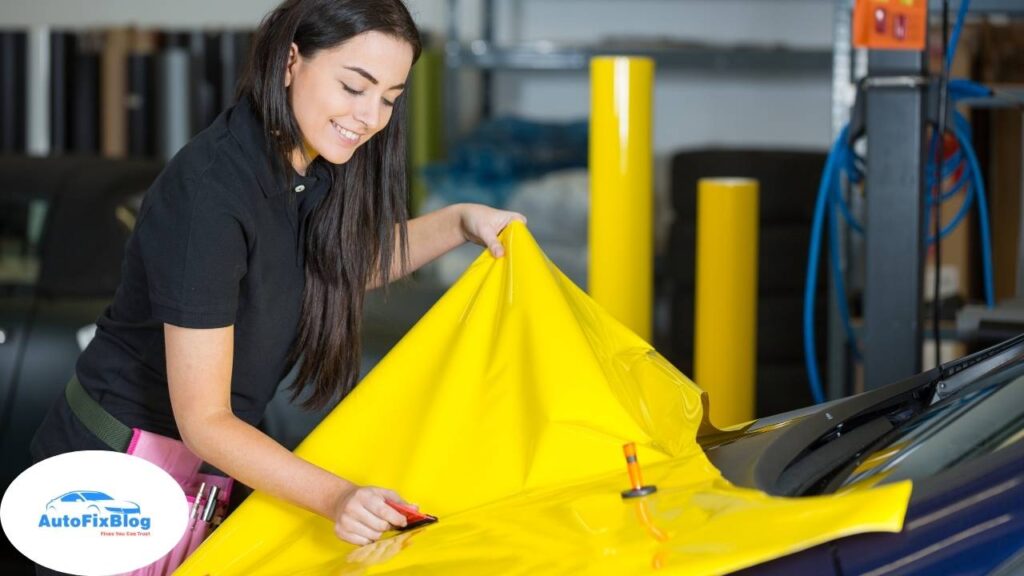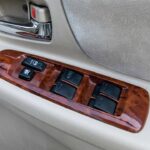Car wraps have become an increasingly popular option for people who want to customize their vehicles or protect their paintwork.
Whether you’re looking to change the color, add a graphic design, or promote a business with a branded wrap, car wrapping offers a stylish and often less permanent alternative to repainting. But one question many people ask before they commit to a wrap is, “How much does it cost to get your car wrapped?”
In this article, we’ll explore the costs involved in getting a car wrap, factors that influence pricing, and what you can expect to pay based on different styles and vehicles. We’ll also cover some important considerations, like maintenance and durability, as well as how wrapping can play a role in fixing your car issues related to paint protection.
What Is Car Wrapping?
Car wrapping is the process of applying a thin, durable vinyl film over your vehicle’s original paint. This film can be customized in nearly any color, finish, or design.
It can cover the entire car or just certain parts, like the roof, hood, or side mirrors. Wraps can also be removed without damaging the original paint, making them an attractive option for those who want to change their car’s appearance without committing to a permanent paint job.
While wraps are commonly used for aesthetic purposes, they can also serve a practical role by protecting your car’s original paint from damage caused by UV rays, dirt, and minor scratches.

How Much Does It Cost to Get Your Car Wrapped?
The price of getting your car wrapped can vary significantly based on several factors, including the size of your vehicle, the quality of the materials used, the complexity of the design, and the expertise of the installer. Here’s a breakdown of the main factors that affect how much does it cost to get your car wrapped:
1. Type of Vehicle
The size and shape of your car play a big role in the overall cost of a wrap. Larger vehicles, such as trucks, SUVs, and vans, require more material and labor to wrap compared to smaller vehicles like sedans or coupes. Here’s an approximate price range based on vehicle type:
- Small cars (e.g., compact cars, coupes): $1,500 – $3,000
- Mid-size cars (e.g., sedans, hatchbacks): $2,000 – $4,000
- SUVs and trucks: $3,000 – $5,000
- Luxury or exotic cars (e.g., sports cars): $5,000 and up
Exotic or high-end cars often require more labor because of their unique shapes and features, making the installation process more time-consuming and detailed.
2. Type of Vinyl Wrap
Not all vinyl wraps are created equal. There are different types of materials, each with its own price point, durability, and appearance. The two main categories are cast vinyl and calendered vinyl.
Cast vinyl: This is the highest-quality material and is commonly used for full vehicle wraps. It conforms to the shape of the car better, lasts longer, and provides a more seamless finish. Cast vinyl can last up to 7 years and typically costs more because of its durability and premium appearance.
Calendered vinyl: This material is less expensive but has a shorter lifespan (usually around 3-5 years). It’s typically used for short-term wraps or partial wraps. Calendered vinyl is less flexible than cast vinyl, which may make it more prone to lifting or peeling over time.
Expect to pay more for a wrap that uses cast vinyl because of its higher quality and longevity.
3. Type of Finish
The finish of the wrap can also impact how much it costs to get your car wrapped. Different finishes come with different price tags. Some popular options include:
Glossy wraps: These mimic the look of a traditional car paint job and are generally among the most affordable wrap finishes.
Matte wraps: Matte wraps provide a sleek, flat look that’s currently popular in the automotive world. They are typically a bit more expensive than glossy wraps due to their unique appearance.
Satin wraps: Satin finishes fall somewhere between glossy and matte, offering a subtle sheen. They are priced similarly to matte wraps.
Chrome or metallic wraps: These are some of the most expensive finishes due to the complexity of the material and the labor-intensive installation process. Chrome wraps reflect light and give the car a mirror-like finish, making them a high-cost option.
A basic glossy wrap might start at $1,500, while a high-end chrome or custom-designed wrap can easily surpass $5,000.
4. Customization and Design Complexity
The more complex the design, the higher the cost. Custom designs that include intricate patterns, multiple colors, or branding (for business vehicles) require more time and expertise from the installer. Graphics and logo designs can add significant cost to the overall price because they require careful planning and precision.
If you’re opting for a simple single-color wrap, expect to pay on the lower end of the spectrum. However, if you want something highly detailed, such as a full-color change with custom graphics or branding, you could be looking at several thousand dollars in additional costs.
5. Professional Installation vs. DIY
The quality of the installation will also affect how much it costs to get your car wrapped. While you can save money by attempting a DIY wrap, professional installation is highly recommended for the best results. Wrapping a car requires specialized tools, experience, and patience. Improper installation can lead to bubbles, wrinkles, and lifting edges, which will shorten the lifespan of the wrap and potentially damage your vehicle’s paint.
Professional installers charge for their expertise, and while it may be tempting to go with a cheaper installer, it’s worth paying for someone who has the experience to ensure a smooth, lasting application.
6. Location of the Installation
The region or city where you have your car wrapped can also influence the cost. For example, getting your car wrapped in a major city like Los Angeles or New York might cost more than in a smaller town due to higher overheads and demand. However, in larger cities, you may also have access to a wider range of professional installers, allowing you to shop around for the best price and service.
Maintenance and Durability
Once your car is wrapped, maintaining it properly will help extend its lifespan and keep it looking great. While vinyl wraps are designed to withstand the elements, they still require care. Here are a few maintenance tips:
Hand wash only: Avoid automatic car washes with abrasive brushes, as these can scratch or peel the wrap. Instead, hand wash your car using a mild soap and soft cloth.
Avoid prolonged sun exposure: While wraps are UV-resistant, parking in the shade or using a car cover can help preserve the color and finish.
Check for lifting edges: Over time, the edges of the wrap may begin to lift, especially in high-stress areas like around door handles or mirrors. If you notice any lifting, have it repaired quickly to prevent further damage.
With proper care, a high-quality vinyl wrap can last anywhere from 5 to 7 years, making it a cost-effective alternative to repainting your car.
Is a Car Wrap Worth the Cost?
Now that you have a better understanding of how much does it cost to get your car wrapped, you may be wondering if it’s worth the investment. Here are a few reasons why wrapping your car can be a good decision:
- Customization: Wraps allow you to completely change the look of your car without a permanent commitment. You can remove the wrap whenever you want to revert to the original color or try something new.
- Paint protection: Vinyl wraps provide a protective layer over your car’s original paint, safeguarding it from UV rays, minor scratches, and road debris.
- Cost savings: While car wraps can be expensive, they’re typically more affordable than a high-quality paint job, especially for custom designs.
- Resale value: A wrap allows you to change the appearance of your car without affecting the original paint, which can help maintain the car’s resale value.
So, how much does it cost to get your car wrapped? The answer depends on various factors, including the type of vehicle, the material and finish of the wrap, the complexity of the design, and the expertise of the installer. On average, you can expect to pay anywhere from $1,500 for a basic wrap on a small car to over $5,000 for a custom design or premium materials.
While wrapping your car can be a significant investment, it’s a cost-effective and versatile way to enhance your vehicle’s appearance, protect the original paint, and even address fixing your car issues related to exterior damage.



